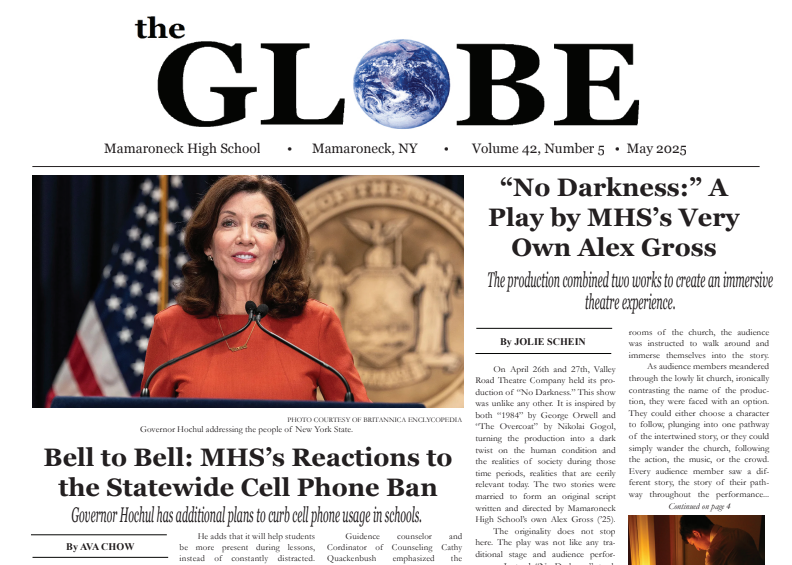Quarantine Grading Policy Yields Mixed Results
June 17, 2020
Mamaroneck High School has made significant changes during this stressful and scary time. As students and teachers adjusted to their new learning environments, they also adapted to a reformed grading system. With the new policy, students performed in their classes as usual, and if they did better in certain classes, those grades would be counted. In classes they did worse, the grades would not count. Some concerns among teachers and the Globe Staff were that this may have resulted in less motivation, but, after further discussion, there was a clear consensus that this new grading system was only designed to help the students.
Many Globe members felt that the third quarter, when no one knew what was going to happen with the grading system, was extremely stressful. Juniors were worried that the “cushion quarter,” when APs are over and the college process is beginning, was going to disappear and they wouldn’t be able to boost their grades. The students felt that this policy was a good compromise. It decreased the stress of testing and gave students the flexibility to take on other responsibilities. One of the major concerns before this policy was implemented was that students wouldn’t have time to help their family or care for a loved one if they were at risk of jeopardizing their grades. Now, they had the choice to work hard in one class to get a grade boost and then focus on other things.
The biggest fear from most schools was that students would stop trying as hard in their classes. Although many Globe students felt that they were still incentivized to do their work, others noticed that they rushed through all of their classes. Since everyone works at a different pace, it was hard for teachers to know the “right” amount of work to give out. While some students complained that their work took them four hours, others complained that it took them only 30 minutes. According to some students, teachers resorted to giving “busy work”: review practice problems, extra homework sheets, unnecessary presentations, etc. to give all the students something to do. Many felt that this type of work caused them to rush even more because it was not new material and just review.
While some were worried about the quality of work, sophomore Globe members had found a silver lining to online schooling. They believed that, by creating a dichotomy between work and grades, it enabled the student to focus more on the work itself. Many sophomores realized that online schooling gave them the opportunity to step back and focus on education. This experience allowed them to think about choosing their junior classes and what they might want to do in the future through this type of learning.
Although the changes have fostered some debate, the Globe staff felt that this new policy was good for the students. This leniency and openness gave them the chance to figure out what they wanted to study and also to destress. While there are more changes to come, students and teachers are continuing to do their best to adapt to this new form of education.





